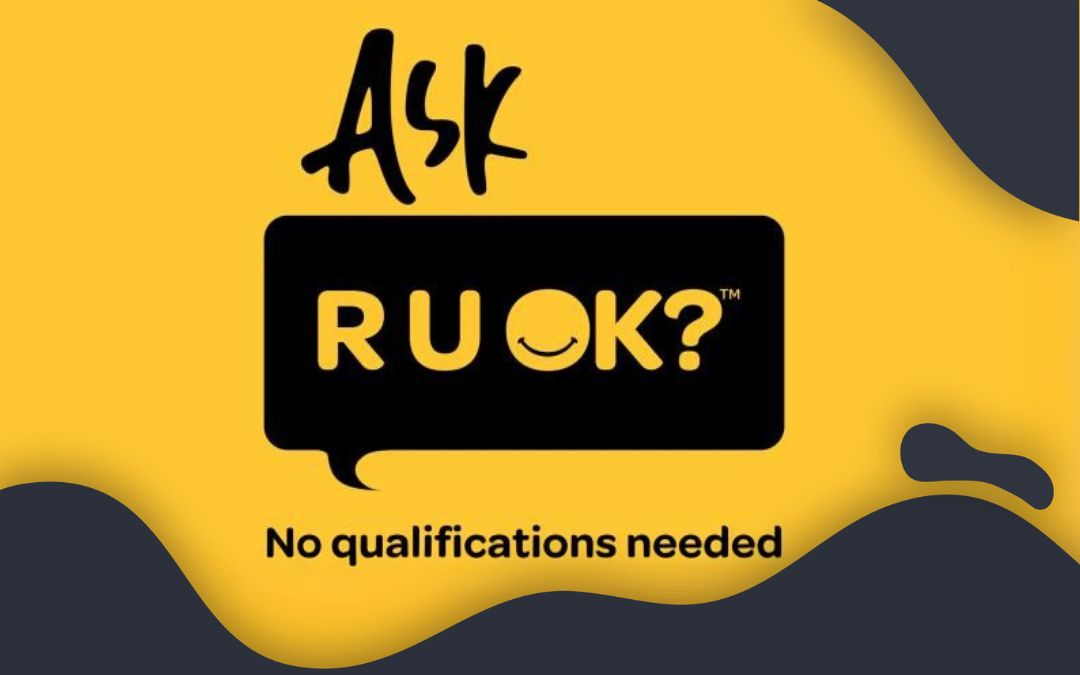
Young people leading the way in asking R U OK?
New insights1 released by R U OK? reveal young people are leading the way in regularly supporting each other and asking, ‘are you OK?’.
The findings come as people around Australia mark R U OK?Day, a National Day of Action that reminds everyone to Ask R U OK?
Any Day, because regular, meaningful conversations can – and do – change lives. The insights reveal an overwhelming majority of those aged 16 – 24 years (94%) supported someone at least once in the past month and across the previous year, 57% have more regularly been asking others, ‘are you OK?’.
“As someone who has spent nearly twenty years in education, and as a parent who has experienced the heartbreak of losing a son to suicide, I see how much is changing across generations. When I look at young people today, I see them leading the way in how they care for each other. They’re having open, honest conversations that my generation simply didn’t have.”
Said educator and R U OK? Community Ambassador, Kate Jones.
“When I was a student forty years ago, mental health was never spoken about. What I see now is a generation stepping into spaces that were once silent. Their willingness to ask the tough questions gives me real hope that the future will be safer and more connected.”
Ms Jones reflected.
Seventeen years since the first R U OK?Day, the organisation continues to inspire and empower everyone to meaningfully connect with those in their world and lend support when they are struggling with life.
“This is how change happens – one conversation at a time, one generation at a time,”
Said R U OK? CEO, Katherine Newton.
However, the data also revealed a confidence gap, with some saying they might hesitate to ask because they don’t want to say the wrong thing, invade someone’s privacy, embarrass them, or not be able to solve their problem.
“We’ve all had moments where we’ve noticed someone struggling with life’s challenges, a serious illness, a relationship breakdown, parenting pressures, financial stress, grief, or perhaps they just haven’t seemed like themselves.We feel we should check in, but then we hesitate. “That hesitation is natural and something we can all experience, me included. But you can make a difference for someone who is struggling if you’re genuine when you reach out, and you really listen.”
R U OK? Community Ambassador Mahir Manut, 19, says a conversation helped him through a tough time. He also said:
“To anyone worried about asking R U OK?, I’d say, ‘what’s the worst that could happen?’. By asking, you open the door to a conversation that could be life-changing. If you don’t ask, that chance disappears completely. At worst, the chat might not go anywhere, but that’s exactly what will happen if you never ask. A conversation definitely can change a life. It changed mine.”
The data supports this, with nine in ten people reporting feeling grateful and supported when someone asked if they were OK. Ms Newton says for those who might be unsure what to say, R U OK? is there to help. She also said:
“When someone is navigating a difficult time, it’s the small moments of care from the people they trust that stay with them. It’s the hand on their shoulder. It’s the message from a friend that says, ‘I know it’s been a rough week, but I’m here’. Words that acknowledge how they’re feeling and remind them they’re not alone.Our free resources are simple and designed to help you feel more confident to check in with someone you care about. You’ve got this, and we’ve got your back.”
Education, workplace, and community resources can be found at ruok.org.au and include the four steps of an R U OK? conversation, ALEC (Ask, Listen, Encourage Action, and Check In).
Ask R U OK? Any Day because a conversation could change a life.
